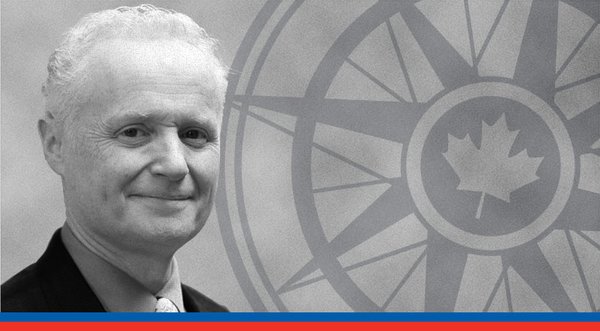As regular readers of this site know, I have the privilege of being a regular columnist with the Ottawa Citizen. Through them a number of my columns appear in other Postmedia newspapers. I enjoy a great relationship with the Citizen and my editor there. I was therefore a little taken aback when the paper refused last week to publish a column I had written for last Saturday’s paper. It’s not a big deal, and I look forward to continuing my relationship with the Citizen for a long time to come, but I thought that readers who missed the column might wish to see it here, and perhaps even pass along to me their thoughts on whether it was not suitable for publication.
The draft, which I reproduce below was admittedly a little different that my usual fare, which tends to focus on public policy quite directly. This column was inspired by a very interesting book I had read by a highly reputable author named Rodney Stark called The Victory of Reason. In this book Stark lays out the close relationship that exists, in his view between Christianity, intellectual, scientific, economic and personal freedom and the emergence of both capitalism and the scientific method in Europe. I found his discussion both stimulating and counter-intuitive, not least because of the narrative that has grown up over the last century or so about the incompatibility of reason and religious faith. Stark’s view, which I found persuasive, was that this is based on a misunderstanding of the intellectual pedigree of Christianity, and the central role that reason has played in its development.
Obviously I didn’t have room to develop all these themes in an 800 word column, so I chose to focus on Stark’s argument about why genuine science (as in the scientific method we recognise and apply now world-wide) emerged from Christian Europe and not, say, Chinese or Islamic civilisation. I gather from my Citizen editor that she found the argument too compressed (fair comment!) and therefore she found that the piece came across as unjustified ethnocentric triumphalism. On my side I wondered (unfairly?) whether my column would have attracted this kind of reaction had it suggested that some religion other than Christianity had been responsible for this signal civilisational achievement…..
Enough from me. Your comments are welcome about the article, reproduced below:
Science and Christianity
Science has been perhaps the most powerful force shaping human life in the last 2000 years. It has fed us, clothed us, educated us, healed us and exalted us while at the same time confronting us with the great challenges of our time: environmental damage, weapons of mass destruction and nuclear waste.
Science is the common inheritance of humanity. After all its precepts have brought great power and progress to peoples all over the world. A scientific principle once established can be harnessed by the Japanese, Egyptians or Mexicans.
But while scientific knowledge, once discovered, cannot be constrained nor undiscovered, science itself did not emerge uniformly across all societies nor is the scientific method which has granted us such insights into the laws of nature the common offspring of all peoples.
Author Rodney Stark in his book The Victory of Reason, makes a convincing case that science is a gift of Western civilization to the rest of humanity. While the Chinese or the Islamic world, for instance, could have given birth to genuine science, they did not. Yes, they accumulated various kinds of knowledge, mostly through accident or trial and error, and that gave them technological abilities that seemed impressive to earlier Western societies (think gunpowder, silks and fine china). But Stark makes the case that the acquisition over many generations of accidental knowledge about the world does not make for genuine science.
As he rightly points out, many societies developed alchemy. Only Europe developed real chemistry. Many societies conceived some version of astrology. Only Europe came up with genuine astronomy.
What makes the difference? Astrology and alchemy both involve close observation of the physical world, a belief that there are secrets there to be discovered and mastered. But science is not the discovery of facts about the world. It is an organized effort to explain nature’s behaviour and to confirm those explanations through testing. It involves both theories about how the world works and then seeing whether those theories hold up in reality.
True science cannot operate on the basis of authority. Just because some revered figure like Aristotle or Confucius or Mohammed claims that the world is flat, or the stars are fixed in crystal spheres or the sun revolves around the earth does not put those theories beyond question. They are to be tested to see if they are accurate. And if they don’t stand up, they must be ruthlessly discarded.
Only the West, says Stark, had the cultural and intellectual tools permitting such a courageous and orderly approach to knowledge. In particular he singles out Christianity as the main factor that permitted the emergence of a scientific mentality that didn’t just discover and catalogue miscellaneous facts about the world, but gave birth to a systematic scientific method that sought testable explanations of those facts.
This assertion flies in the face of a popular prejudice of our modern age that sees an irreconcilable conflict between reason and faith, that scientific enquiry is incompatible with a belief in the divine. But this was not at all the view of many of those who gave rise to science as we know it. Isaac Newton always believed his theological works were far more important than his treatises on physics, and Copernicus was a devout canon of the church. Science, being based on observation, can have nothing to say about what cannot be directly observed, and so has nothing to say about matters of faith or the existence of God.
What made it possible for science to emerge in Western societies was the notion that a perfect God had created the world and since his creation must also be perfect it must be governed by immutable laws, give or take the occasional miracle. And human beings, endowed by their Creator with reason, had both the ability and responsibility to understand and contemplate the perfection of his creation. Crucially, Christianity, with its notion of a beginning and end to time and the movement toward the fulfillment of God’s plan for humanity, was based on the concept of progress. With time we can improve, learn more, perfect our knowledge.
This was quite different from the intellectual starting point of most other societies, who saw the world as eternal and uncreated, mysterious beyond all human understanding, or subject to the whims of deities whose will was unconstrained by anything so vulgar as natural laws. In such societies history is seen as cyclical, not progressive. Humanity does not advance through an accumulation of knowledge over time.
Clearly you do not need to believe in God to understand, benefit from or participate in the scientific enterprise. But without Christianity and its unique world view, Stark says, that enterprise might never have got off the ground.
Brian Lee Crowley (twitter.com/brianleecrowley) is the Managing Director of the Macdonald-Laurier Institute, an independent non-partisan public policy think tank in Ottawa: www.macdonaldlaurier.ca.


